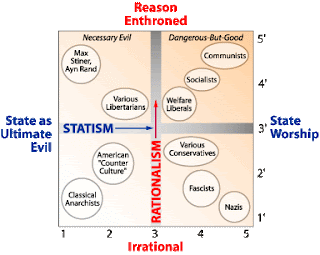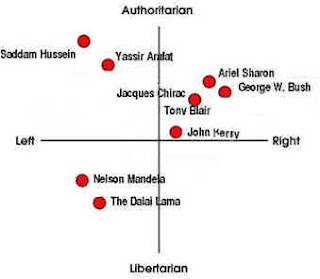image: The ruins of Bagan, Myanmar
Understanding a particular place seems to involve a very specific kind of knowledge and research. It involves understanding the unique combination of historical circumstances, social processes, cultural formations, and unique institutions that give rise to the current complex social reality. And yet it also involves an effort to understand and explain the developments that are observed -- which implies some sort of appeal to social science theory. For the past four decades this space has been occupied by "area studies" -- Latin American studies, Asian studies, African studies.
Here is a nice 1998 paper by South Asian historian and former president of the Association for Asian Studies David Luddens on the epistemic foundations of area studies (link). Here is how Luddens formulates the issue:
The production of area-specific knowledge about the world has no firm theoretical foundation. It seems to be an intellectual by-product of modern state territorialism and of those state-supported institutions of area studies which became prominent during the heyday of the nation state, in the decades between 1945 and 1990. Area studies in the university find their official justification in itself because they effectively serve disciplines, professions, business and national interests. The rationale for area studies for itself derives from the need to understand the diversity of human experience, which is increasingly embroiled in identity politics and debates about cultural pluralism. University administrators, legislators, and funding agencies now find the old rationale for area studies less compelling and institutional support for the production of area-specific knowledge depends more and more on its utility for academic globalization, as the university, like business and government, seeks to expand its operations around the world and to establish it own authority in global culture. Though scholars who produce area-specific knowledge are well endowed with talent and resources, they find it hard to adapt to this trend without sacrificing their old intellectual commitments, because they have such a weak theoretical justification for doing what they do. To sustain their enterprise, they need to theorize area-studies in relation to globalization. This is the first in a set of essays that work in that direction. It focuses on the institutional history of area studies in the long-term process of globalization. (1)Here I'd like to focus on the relationship between area knowledge and disciplinary knowledge.
Area studies is in its nature an interdisciplinary assemblage, at two levels -- institutional and individual. For example, centers for Latin American studies commonly involve political scientists, anthropologists, literary specialists, art historians, and sociologists, each bringing a specific body of knowledge and inquiry to the collective effort. But furthermore, each individual area specialist is expected to show some degree of interdisciplinary knowledge in his or her research. This is the value-added provided by a center: individuals come together and gain insight from colleagues in other disciplines. It is commonly believed among area specialists that excessive focus on a single disciplinary perspective is likely to create a form of "aspect blindness" in the investigator -- the economic historian of China overlooks the cultural forces at work, the political scientist who studies Latin American populism may fail to see the influence of religious traditions, and so forth.
How should area studies specialists and historians employ general social theories in attempting to understand particular social and historical examples? How, for example, is social science theory pertinent to explaining the historical experience of India or Burma? In other words, how can we bring together the specific knowledge of area specialists and the more general knowledge of discipline-based social scientists?
Some theoretical frameworks -- the study of social movements, analysis of land tenure relations, analysis of local political power practices, analysis of local political traditions -- are plainly useful across studies of various societies. They offer good common questions -- so long as we recall that there are very different answers to these questions in different places and times. And they can provide suggestive ideas about the causal processes that may be underway in particular periods of social change.
One important goal of the use of social science theories is to help the researcher to arrive at descriptions of the particular institutions, traditions, mentalities, etc., through which various general factors are worked out -- to mediate the particular and the general. Social science theories provide developed conceptual schemes and vocabularies in terms of which to analyze the concrete social phenomena. What is a revolution? How does it differ from a coup or a fall of government? So social science theory is valuable as a source of ideas about how to organize and conceptualize the social given in a particular area.
Another critical contribution of the social sciences to area studies is the growing collection of common social mechanisms and processes that political scientists, sociologists, and economists have studied in detail. Social scientists aren't able to provide comprehensive theories of society that can simply be "applied" to specific areas; there is no general theory of the state that would permit the Middle East specialist to understand and predict the behavior of the Syrian regime. But social scientists are able to identify mundane mid-level mechanisms that arise in politics, economies, and social movements; and these theories of specific mechanisms can be of great value to the area specialist. (This is a crucial contribution of Chuck Tilly's work; for example, Tilly and Tarrow, Contentious Politics
Consider one particular example -- the China area specialist who is trying to get a better understanding of changes in China's economic structure between 1980 and 2000. Findings having to do with the mechanisms of rent-seeking and corruption will probably shed important light on the developments; the mechanism of "bureaucratic clientelism" will be helpful; and mechanisms of social movements and labor mobilization will prove helpful as well. In one sense China's sudden economic transformation after the reforms of the early 1980s was sui generis. But it also consisted of a number of component processes that have been identified and studied in very different historical and cultural settings. (Jean Oi's State and Peasant in Contemporary China: The Political Economy of Village Government provides a good example.)
So there is an important sense in which the social sciences permit a basis for generalizing and explaining when we consider specific areas. But it is crucial to avoid the mistake of over-generalizing.
One such mistake is the idea that we can simply subsume a particular region's experience under a comprehensive general theory. In particular, we should avoid stereotyped contrasts and models of change: traditional-modern; capitalist-feudal; stagnant-dynamic. Constructs such as "modernization theory" are unhelpful, because they import a raft of unspoken presuppositions, they are teleological, and they are formulated at too high a level. Area specialists are better served by meso-level theories of social mechanisms. (Arturo Escobar offers a strong contemporary critique of modernization theory in Encountering Development
Another variety of faulty historical analysis is the intellectual error of Eurocentrism. It is critical that we not generalize from the experience of Western Europe in application to Asia or Africa. Consider the example of Asian politics. The polity of pre-colonial India was highly pluralistic, with a very wide and heterogeneous set of social relations, forms of power, ethnic conflicts, economic forms, and political and quasi-political arrangements. China, by contrast, was a more uniform political order, with a visible unified state. And neither of these states is well understood if we simply import the apparatus of political theory developed out of study of the modern European state. So there is great variety and originality in the political institutions of India, China, or Bali, and we cannot understand those institutions by simply attempting to find European analogies. (Bin Wong makes these points very powerfully in China Transformed: Historical Change and the Limits of European Experience
So area scholars have to aim for a delicate balance, between concrete, local knowledge and the application of relevant findings from the social sciences. But the social sciences certainly have a key role in understanding the institutions, mentalities, and behavior of particular places.



 Posted in:
Posted in: 






.png)













